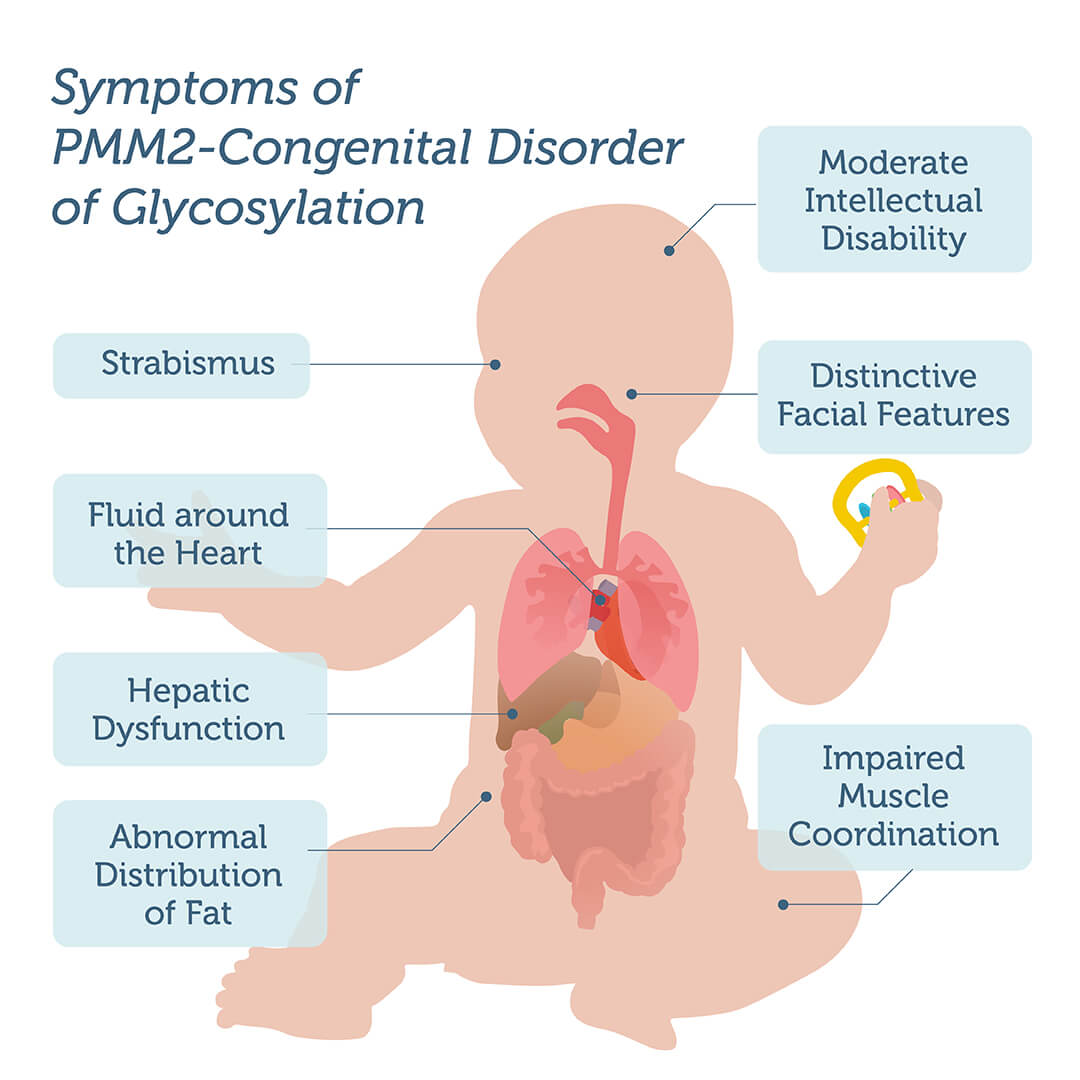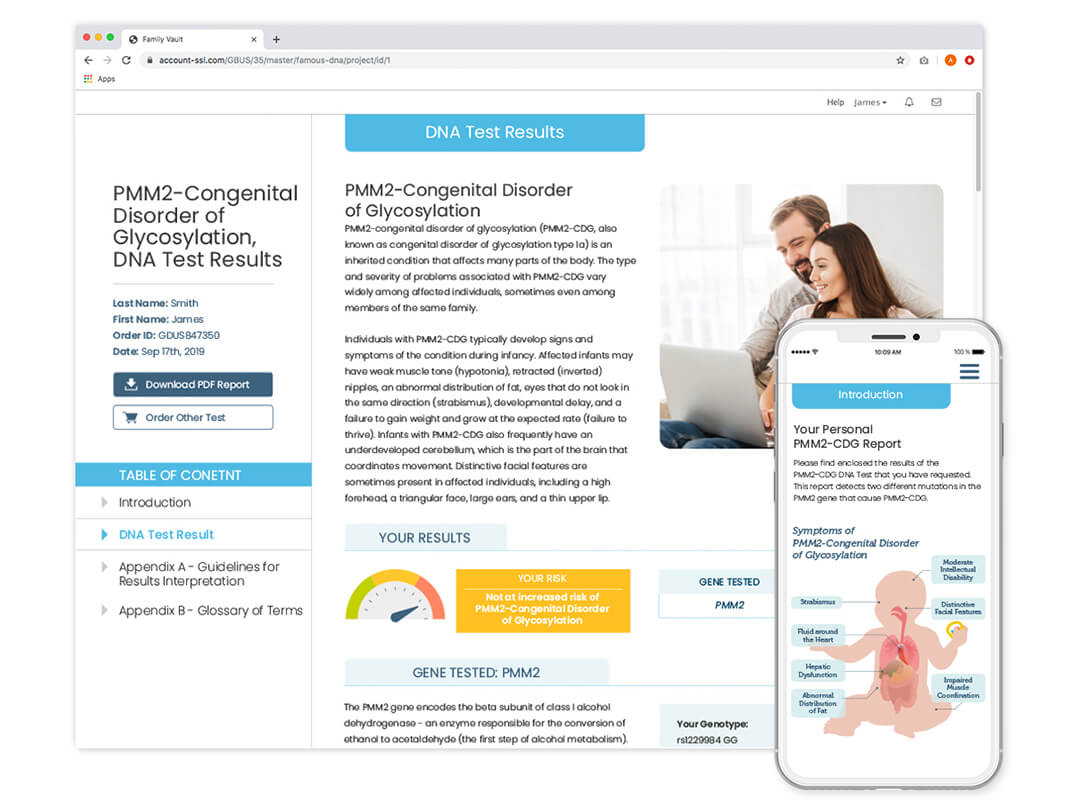PMM2-Congenital Disorder of Glycosylation
Are you a genetic carrier for PMM2-congenital disorder of glycosylation? Find out with this DNA Test.
- Detects two variants of the PMM2 gene linked to PMM2-congenital disorder of glycosylation
- Carrier screening test intended for couples who are planning to become pregnant
- Determine the risk of your child inheriting PMM-CGD
- 100% private and confidential online results
Already have DNA markers? Sign in and upload your data to view results.
Need to take the DNA Test? Order our easy-to-use swab kit.
Detailed Description
PMM2-congenital disorder of glycosylation (PMM2-CDG) is a rare metabolic disease that affects many part of the body, particularly the nervous system. It is caused by low activity levels of the enzyme phosphomannomutase 2 (aka PMM2) involved in glycosylation.
PMM2-CDG is most common in people European ancestry, specifically the Dutch and the Danish. Signs and symptoms can vary widely between affected people (mild to severe), sometimes even when they are in the same family. It is an autosomal recessive disease, which means two defective copies of the PMM2 gene must be inherited in order for the disease to manifest.
Take this test to find out whether you are a genetic carrier of PMM2 variants and are at risk of passing it to your children. This is intended to be a carrier screening test for couples who are considering to start a family.

The Genetics
PMM2-CDG is caused by genetic variation in the PMM2 gene. People with genetic variants produce a PMM2 enzyme with lower activity, thereby affecting the glycosylation of many different proteins in multiple tissues and organs.
It is inherited in an autosomal recessive pattern, which means two defective copies of the PMM2 gene must be inherited in order for the disease to manifest.

Variant Tested
This test looks at two genetic variants of PMM2 linked to PMM-CDG in people of Dutch and Danish descent.
- rs28936415
- rs8033870
Understanding your carrier status for the PMM2 variant will help you understand the risk of passing this variant to your children.
While this test provides a risk analysis for two variants associated with PMM2 complete gene sequence analysis may be necessary to identify additional variants.
Signs & Symptoms of PMM-CGD
Symptoms of Infantile Stage
- Feeding issues
- Developmental delays
- Under development of part of the brain
- Muscle weakness
- Failure to thrive,
- Distinct physical abnormalities present at birth
Symptoms of Childhood Ataxia-Intellectual Disability Stage
- Various degrees of intellectual disabilities
- Vision problems
- Speech problems
- Difficulty feeding and walking
- Bleeding issued due to low clotting protein
Adult Stable Stage
- Abnormally curved spine and other skeletal abnormalities
- Lower sensation and weakness in arms and legs
- Lower muscle coordination
- Joint abnormalities
How It Works
Step 1: Sign up for a free Genebase account.
Step 2: Upload your DNA markers to Genebase.
Step 3: Login to your account to access your results when they are ready.


